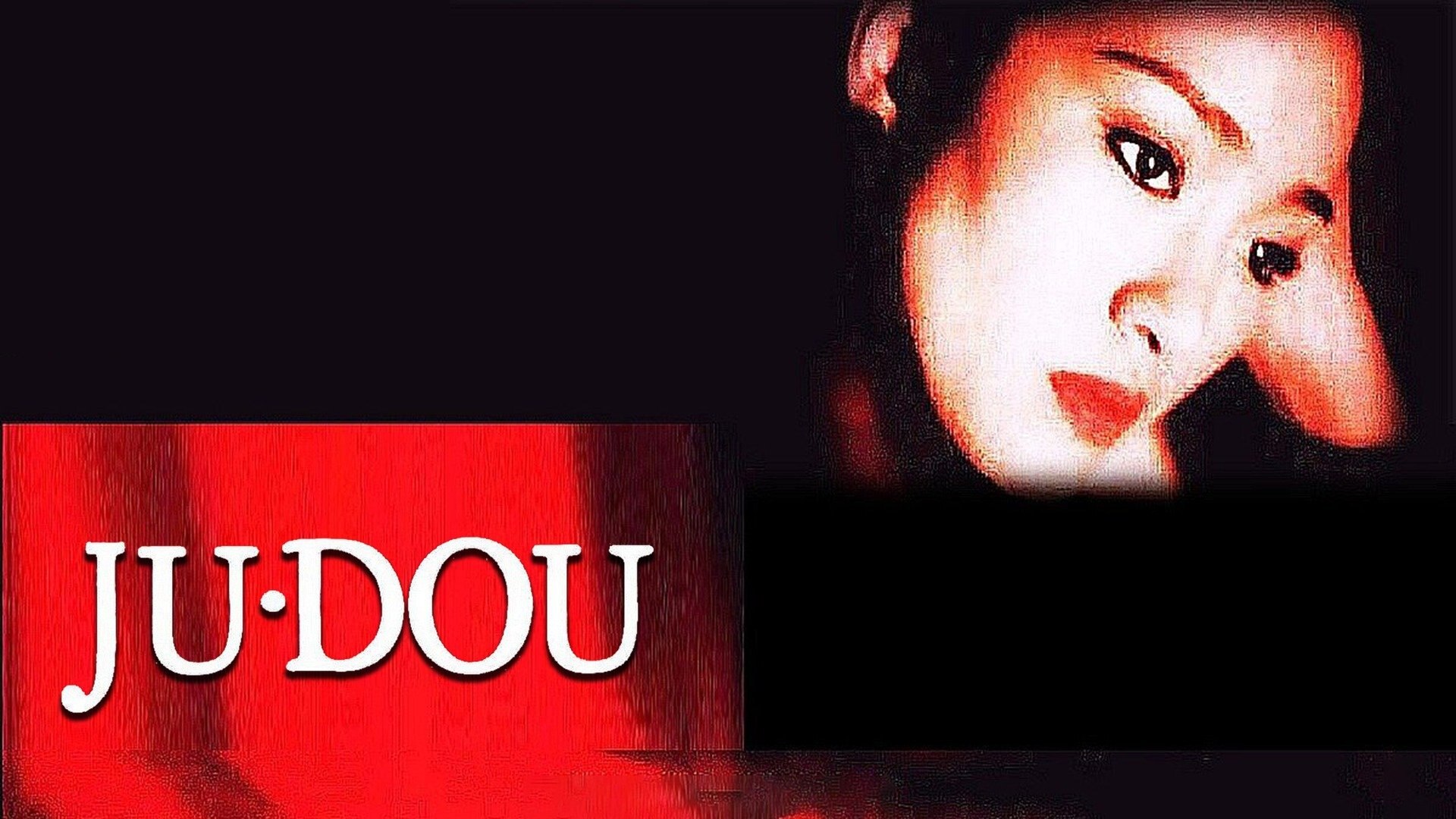
Ju Dou is a critically acclaimed Chinese film directed by Zhang Yimou and released in 1990. This mesmerizing and visually stunning movie takes the audience on a captivating journey through the intricacies of human relationships, societal norms, and the relentless pursuit of love and freedom. Set in rural China during the 1920s, Ju Dou tells the story of a young woman trapped in a loveless marriage, finding solace and passion with her husband’s nephew. This film not only showcases the immense talent of the cast and crew but also delves deep into themes of oppression, desire, and the indomitable spirit to defy societal constraints. In this article, we will explore 48 fascinating facts about Ju Dou, highlighting its historical significance, artistic achievements, and its impact on Chinese cinema. So grab your popcorn and get ready to immerse yourself in the enchanting world of Ju Dou!
Key Takeaways:
- Ju Dou is a visually stunning Chinese film set in the 1920s, exploring love, betrayal, and societal pressures. It showcases the resilience of its characters and challenges societal norms.
- The movie’s international success opened doors for Chinese cinema, inspiring filmmakers and sparking discussions about the role of cinema in society. It continues to resonate with audiences worldwide.
Ju Dou is a Chinese drama film directed by Zhang Yimou.
Released in 1990, Ju Dou is a renowned masterpiece that showcases the extraordinary talents of its director and cast.
The movie is set in rural China during the 1920s.
It offers a glimpse into the social and cultural dynamics of the time, showcasing the struggles and hardships faced by the characters.
The title “Ju Dou” literally translates to “Chrysanthemum Daisy”.
This symbolic title refers to the character of Ju Dou, who is resilient and strong, much like the flower itself.
Gong Li, one of China’s most acclaimed actresses, plays the lead role of Ju Dou.
Her performance in the movie is powerful and emotionally charged, capturing the essence of the character with remarkable depth.
The movie was nominated for an Academy Award for Best Foreign Language Film.
This recognition further solidified its reputation as a groundbreaking work of cinema.
It was the first mainland Chinese film to be co-produced with a foreign country.
This collaboration with Japan allowed for a unique cultural exchange and contributed to the film’s global success.
The cinematography in Ju Dou is visually captivating.
Every frame is meticulously composed, enhancing the storytelling and immersing the audience in the characters’ world.
The movie explores themes of love, betrayal, and societal pressure.
It delves into the complexities of human relationships and the consequences of societal norms.
Ju Dou marked the beginning of Zhang Yimou’s collaboration with cinematographer Zhao Fei.
Their partnership resulted in many visually stunning films that continue to inspire filmmakers today.
The production of Ju Dou faced several challenges due to its controversial content.
The portrayal of taboo subjects, such as adultery and abuse, led to conflicts with governmental authorities, but the film persevered and found its way to international acclaim.
The movie showcases the vibrant colors of the chrysanthemums and daisies, symbolizing hope and endurance.
The use of colors adds a visually stunning dimension to the narrative, making it a feast for the eyes.
Ju Dou’s story is deeply rooted in Chinese folklore and traditional storytelling techniques.
It pays homage to the rich cultural heritage of the country, adding layers of depth to the narrative.
The powerful performances of the cast earned them critical acclaim.
Each actor brings a unique dimension to their character, making the story come alive with authenticity and emotion.
Ju Dou was the first Chinese film to be distributed by a major Hollywood studio.
This marked a significant milestone in the recognition of Chinese cinema on the global stage.
The film’s soundtrack, composed by Zhao Jiping, beautifully complements the visuals.
It adds an enchanting layer of emotion and atmosphere, further enhancing the viewer’s experience.
Ju Dou has been praised for its subtle and nuanced storytelling.
The narrative unfolds in a way that keeps the audience engaged, while still leaving room for interpretation and reflection.
The movie was banned in mainland China upon its release.
However, it gained international recognition and was celebrated for its artistic merits.
Ju Dou explores the theme of female empowerment.
The character of Ju Dou defies societal expectations and fights for her own agency and freedom.
The film showcases the struggles and oppression faced by women during that era.
It sheds light on the societal constraints that limited their opportunities and choices.
The intricate set designs and costumes vividly depict the rural Chinese life of the time.
Every detail contributes to the authenticity of the setting, immersing the audience in the character’s world.
The movie explores the consequences of repressive social structures and traditions.
It highlights the destructive impact of rigid societal expectations on individual lives.
Ju Dou stands as a testament to the power of cinema as a medium for social commentary.
It challenges conventional norms and prompts viewers to question societal injustices.
The film’s international success opened doors for more Chinese films to gain recognition in the global film industry.
It helped pave the way for a new wave of Chinese cinema that continues to thrive today.
Ju Dou’s story is heart-wrenching and emotionally charged.
It evokes a range of emotions, leaving a lasting impact on the viewer.
The movie’s screenplay is based on the novel “Wives and Concubines” by Su Tong.
It brilliantly translates the essence of the novel onto the screen, capturing the complexity of its characters and their relationships.
Ju Dou was praised for its bold and uncompromising approach to storytelling.
It fearlessly delves into taboo subjects, challenging societal norms and expectations.
The movie exemplifies the artistry and craftsmanship of Zhang Yimou as a director.
It showcases his ability to create visually stunning films that resonate with audiences worldwide.
Ju Dou’s international success helped bring attention to Chinese cinema as a whole.
It sparked curiosity and interest in the diverse range of stories and talent emerging from the country.
The film’s themes of resilience and survival resonate with audiences across cultures.
It is a testament to the universal appeal of human stories and emotions.
Ju Dou features breathtaking scenes that illustrate the beauty of the Chinese countryside.
The natural landscapes serve as a powerful backdrop for the characters’ struggles and triumphs.
The movie was critically acclaimed for its powerful symbolism.
Each visual element carries a deeper meaning, adding layers of complexity to the story.
Ju Dou’s success at various film festivals further cemented its position as a cinematic gem.
It garnered awards and recognition for its exceptional performances and captivating storytelling.
The film’s narrative explores the consequences of secrets and lies.
It delves into the destructive nature of suppressing truth and the toll it takes on relationships.
Ju Dou is a thought-provoking and emotionally turbulent journey.
It challenges the audience to reflect on their own values and the impact of societal expectations on individual lives.
The movie explores the complexities of power dynamics within relationships.
It unveils the ways in which power can be abused and highlight the importance of mutual respect and consent.
Ju Dou’s impact extends beyond its initial release.
It continues to inspire filmmakers and spark discussions about the role of cinema in society.
The movie’s historical backdrop provides a rich context for the narrative.
It offers insights into the societal transformations occurring during that period of Chinese history.
The film’s powerful portrayal of passion and desire resonates with audiences of all backgrounds.
It captures the intensity of human emotions, making it a universal story of love and longing.
Ju Dou’s success opened doors for international collaborations in the Chinese film industry.
It showcased the immense talent and creativity present in Chinese cinema, attracting filmmakers from around the world.
The movie’s critical acclaim solidified Zhang Yimou’s reputation as a visionary director.
His ability to weave powerful narratives with stunning visuals continues to captivate audiences to this day.
Ju Dou’s success helped pave the way for globalization of Chinese cinema.
It marked a pivotal moment in the industry and led to increased recognition and distribution of Chinese films worldwide.
The movie’s impact on Chinese cinema cannot be overstated.
It served as a catalyst for change, inspiring a new generation of filmmakers to push boundaries and defy conventions.
The film’s dialogue is poetic and thought-provoking.
Each line carries weight and adds to the richness of the storytelling.
Ju Dou’s profound exploration of the human condition makes it a timeless classic.
Its themes and messages continue to resonate with audiences, regardless of time or cultural background.
The movie’s tragic and bittersweet ending leaves a lasting impact.
It serves as a poignant reminder of the harsh realities faced by the characters and the consequences of their actions.
The film’s success helped raise awareness about Chinese culture and traditions.
It provided a window into the rich history and artistic heritage of the country.
Ju Dou’s powerful storytelling transcends language barriers.
Its emotions and themes can be understood by audiences around the world, making it a truly universal cinematic experience.
The enduring legacy of Ju Dou lies in its ability to evoke a range of emotions.
It is a testament to the power of cinema to touch the hearts and minds of its viewers, leaving a lasting impression.
Conclusion
Ju Dou is a critically acclaimed Chinese film that has captivated audiences worldwide with its powerful storytelling and stunning cinematography. Through its compelling narrative and compelling performances, the movie explores themes of love, betrayal, and the resilience of the human spirit. With its visually striking scenes and thought-provoking plot, Ju Dou is a cinematic masterpiece that leaves a lasting impact on its viewers.
FAQs
Q: Who directed the movie Ju Dou?
A: Ju Dou was directed by Zhang Yimou, a renowned Chinese filmmaker known for his visually stunning films.
Q: When was Ju Dou released?
A: The movie Ju Dou was released in 1990.
Q: Where was Ju Dou filmed?
A: Ju Dou was filmed in China, specifically in the countryside of Zhang Yimou’s hometown.
Q: What language is Ju Dou in?
A: Ju Dou is primarily in Mandarin Chinese, with subtitles available in various languages for international audiences.
Q: Is Ju Dou based on a true story?
A: No, Ju Dou is not based on a true story. It is a work of fiction created by the filmmakers.
Q: What awards did Ju Dou receive?
A: Ju Dou received numerous awards and nominations, including an Academy Award nomination for Best Foreign Language Film.
Q: Can children watch Ju Dou?
A: Ju Dou contains mature themes and intense scenes that may not be suitable for young children. It is advised to refer to the film’s rating and parental guidance recommendations before allowing children to watch.
Was this page helpful?
Our commitment to delivering trustworthy and engaging content is at the heart of what we do. Each fact on our site is contributed by real users like you, bringing a wealth of diverse insights and information. To ensure the highest standards of accuracy and reliability, our dedicated editors meticulously review each submission. This process guarantees that the facts we share are not only fascinating but also credible. Trust in our commitment to quality and authenticity as you explore and learn with us.


